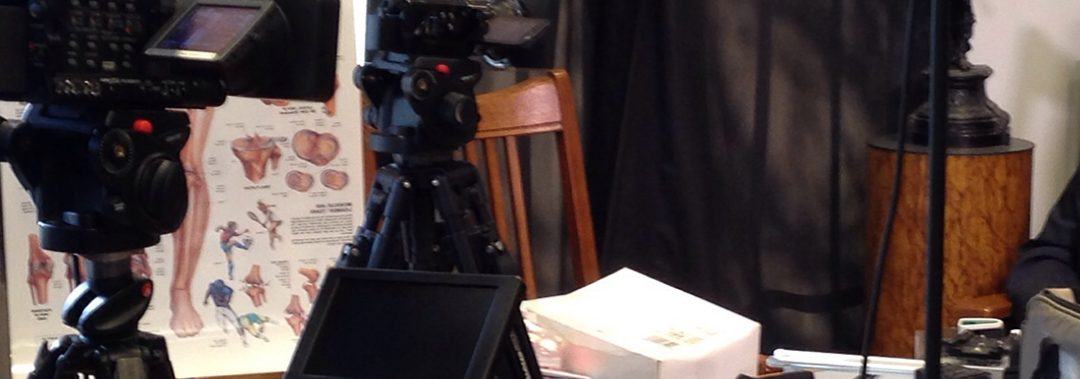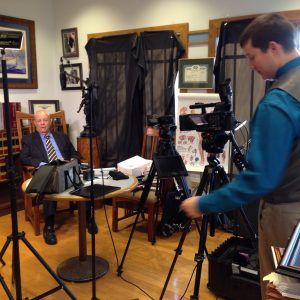- Essential for demonstrating expertise, delivering data, and revealing personality.
- Often boring.
- Too long.
- The reason I click off a video.
- A necessary evil.
- All of the above.
Of course you chose “E,” right?
When you think about all the interviews you’ve seen on television: talk shows, news broadcasts or on online media… it’s a lot! Let’s face it, interviews are here to stay – they’re often really useful – but can we make them more watchable? Yes. Here’s how:
- Try to come up with questions that no one’s ever asked the interviewee, before. You probably think, “… exactly how do I do that, smarty pants?” Well, it’s best to do your homework before the interview. You really want to know as much as you can about subject, whether they’re a businessperson who’s trying to expand her company’s marketing outreach or he’s an author or she’s an athlete.
The more you know about your subject, the more opportunity you have to get personal or relate something they do professionally to a hobby, their family, or some area of their life that might not naturally come up in a business context.
For example, say you’re speaking with a CEO of a manufacturing company, but you might ask about his passion for cars and how that pursuit translates to his role and his company. The worst outcome is that you hear nothing new or interesting – and that’s okay – make sure you have several areas of interest, so that you can continue to ask more atypical questions.
- Don’t wing it! Prepare more questions than you think you’re going to need. You really won’t know how long the interviewee’s answers are going to take. You might be surprised and finish the interview in far less time than you expected it to take and not have enough quality material to edit. Remember not to box yourself in by asking any questions that may be answered with a yes or no response (close-ended questions), always ask open ended questions that offer the interviewee a chance to expound and explore.
- Take notes as you go and be prepared to ask follow-on questions in the moment, based on your subject’s responses. Sometime these conversational tangents capture the interviewee’s most interesting and revealing characteristics. In other words, you never know what you’re going to get so take a risk and go down dark and dead-end alleys.
- Try to elicit as many facts, figures, data, and findings as possible from your subjects. These bits of information provide innumerable rich detail from which aspects of an interview may be tailored. Additionally these facts can be backed with motion graphics, rich and compelling visual counterpoints, to make a more visually appealing interview.
- Don’t bully your subject, but be prepared to ask difficult and sometimes even mildly confronting questions. Why? You want your subject to be as frank and authentic as they can possibly be, and if they’re reserved or they deliver surface answers, you are going to need to probe more deeply. Otherwise you risk having them say nothing of substance. There is nothing duller than a talking head that speaks in generalities and pleasantries. No one wants to take her or his precious time to watch someone who politely says nothing.
- Make the environment as pleasant and quiet as possible. It’s often best to shoot an interview at the subject’s place of business or somewhere familiar where they’re going to be comfortable.
Be professional, but don’t be stiff. You’ve got to establish rapport with your subject long before the camera rolls. She or he has got to trust you, so you need to be open and friendly and vulnerable.
If there are a lot of people hanging around just watching and not actively doing something (recording sound, running the camera, etc.) politely kick them out. A nervous or anxious subject is not going to give you a very good interview. Make sure everyone is quiet and respectful. Crew should solely focus on their jobs and not interject anything at all.
As an interviewer it’s your job to draw the very best out of your subject. Do your homework, bring a light and open attitude to the location, listen and follow your instincts. If you hear a question that must be asked, write it down and ask it! Don’t miss the opportunity. If you do all of these things, you’re going to have some good material to edit and people really will want to watch another talking head.


